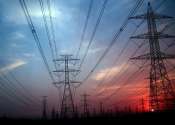A nuclear weapon is an explosive device that derives its destructive force from nuclear reactions, either fission or a combination of fission and fusion. Both reactions release vast quantities of energy from relatively small amounts of matter; a modern thermonuclear weapon weighing little more than a thousand kilograms can produce an explosion comparable to the detonation of more than a billion kilograms of conventional high explosive. Even small nuclear devices can devastate a city. Nuclear weapons are considered weapons of mass destruction, and their use and control has been a major aspect of international policy since their debut.
In the history of warfare, only two nuclear weapons have been detonated offensively, both near the end of World War II. The first was detonated on the morning of 6 August 1945, when the United States dropped a uranium gun-type device code-named "Little Boy" on the Japanese city of Hiroshima. The second was detonated three days later when the United States dropped a plutonium implosion-type device code-named "Fat Man" on the city of Nagasaki, Japan. These bombings resulted in the immediate deaths of around 120,000 people (mostly civilians) from injuries sustained from the explosion and acute radiation sickness, and even more deaths from long-term effects of ionizing radiation. The use of these weapons was and remains controversial. (See atomic bombings of Hiroshima and Nagasaki for a full discussion.)
Since the Hiroshima and Nagasaki bombings, nuclear weapons have been detonated on over two thousand occasions for testing purposes and demonstration purposes. The only countries known to have detonated nuclear weapons—and that acknowledge possessing such weapons—are (chronologically) the United States, the Soviet Union (succeeded as a nuclear power by Russia), the United Kingdom, France, the People's Republic of China, India, Pakistan, and North Korea. Israel is also widely believed to possess nuclear weapons, though it does not acknowledge having them. (For more information on these states' nuclear programs, as well as other states that formerly possessed nuclear weapons or are suspected of seeking nuclear weapons, see list of states with nuclear weapons.)









